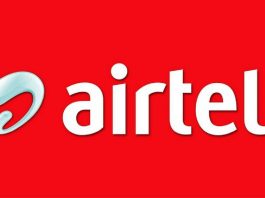Fitch Downgrades Seplat Rating, Outlook Stable
Fitch Ratings has downgraded Seplat Energy Plc.’s Long-Term Issuer Default Rating (IDR) and senior unsecured rating to ‘B-‘ from ‘B’ with an outlook accorded as stable, according to a note.
The rating action on the company which recently refocuses made a move to acquire assets of ExxonMobil in Nigeria follows the downgrade of Nigeria’s Long-Term IDRs to ‘B-‘ from ‘B’ and the Country Ceiling to ‘B-‘ from ‘B’.
Seplat’s Long-Term Foreign-Currency IDR is capped at Nigeria’s Country Ceiling due to limited offshore structural enhancements, Fitch explained, noted that the rating also takes into account the concentration of the company’s asset base in Nigeria and its exposure to the Nigerian operating environment.
Fitch noted that Seplat continues to source all its production from Nigeria. However, under Central Bank of Nigeria regulation, export revenues must be transferred to domestic accounts within 90 days of receipt.
The company follows a practice of sending export proceeds to domestic accounts before they are repatriated to offshore accounts typically after 24 hours, according to the rating note. READ: Seplat Plc.’s Earnings Bounced Back Strongly on Higher Oil Prices
Combined with Seplat’s exposure to the operating environment in Nigeria, this constrains Seplat’s rating to Nigeria’s Country Ceiling of ‘B-‘, Fitch said, adding that its recent acquisition strengthens the company’s business profile.
Fitch said Seplat’s acquisition of Exxon Mobil’s offshore shallow water assets in Nigeria, Mobil Producing Nigeria Unlimited (MPNU), if successful, will increase its working interest production to around 146 thousand barrels of oil equivalent per day (kboe/d) from 51kboe/d in 2020.
Meanwhile, its 2P reserves will nearly double to 945 million barrels of oil equivalent (mmboe), saying this will strengthen the business profile due to larger-scale operations combined with diversification into offshore operations, mitigating potential onshore logistical interruptions”.
The rating note stated that the delay to, or possible cancellation of, the acquisition of MPNU from Exxon Mobil, will not have any impact on Seplat’s rating. MarketForces Africa recalls that the deal is on hold due to arbitration in Nigerian High State Court between Nigerian National Petroleum Company Limited (NNPC) and MPNU.
The arbitration is for a dispute over the interpretation of pre-emption rights under a joint operating agreement between the parties. Although Seplat is not a party to the suit, the Nigerian State High Court ordered an injunction preventing the completion of the acquisition until the court proceedings are concluded.
In the absence of the acquisition Seplat’s business profile would remain in line with its ‘B-‘ rating, Fitch said in the recent assessment of the company, noting that the hydrocarbon focus company has moderate leverage.
The acquisition payment of USD1.3 billion will be funded by a senior-term loan of USD550 million – USD600 million and a junior offtake facility of up to USD225 million-USD275 million, with the balance to be covered by a USD350 million undrawn revolving credit facility (RCF) and cash. Due to the material earnings before interest tax depreciation and amortization (EBITDA) contribution of the acquired assets; Fitch said it expect funds from operations (FFO) net leverage to remain below 1.5x in 2023 and below 2.0x in 2024-2025.
It added that potential payment of USD300 million contingency is subject to the oil price and production thresholds at which we expect sufficient coverage from free cash flow (FCF).
If the acquisition does not take place, Seplat’s credit metrics will still remain strong, Fitch added, noting the company has conservative financial policy.
“We view Seplat’s financial policies as conservative and underpinned by prudent debt management, with flexibility to suspend dividends and capex, as demonstrated during the troubled 2016-2017 period”.
In Q3-2022, despite challenging market conditions Seplat successfully refinanced its USD350 million RCF and extended its maturity until 2025 with a one-year extension option.
In the note, Fitch said the commissioning of Amukpe-Escravos Pipeline (AEP) in 3Q22 should provide a more reliable and secure export route from Seplat’s major assets since the infrastructure is mostly underground.
Before that, Seplat had relied on the Trans Forcados System, which has experienced numerous disruptions due to pipeline maintenance and vandalism.
It noted that the energy company’s operations are concentrated around the Niger Delta region of Nigeria. The Nigerian oil and gas sector is characterised by high operational risks and regulatory uncertainty.
Seplat’s pre-acquisition main assets are the Oil Mining Leases 4, 38 and 41, which accounted for around 77% of 2021 production, according to the rating note.
“We expect Seplat to ramp up its daily oil and gas output at existing assets to 59 kboe/d until 2024, from 48 kboe/d in 2021”, Fitch said. Seplat’s gas production was 19 kboe/d in 2021, or 39% of its total hydrocarbon volumes.
The regulated gas price under domestic supply obligation for power generation (around 30% of Seplat’s gas volumes) was lowered in July 2021 to USD2.18 per thousand cubic feet (kcf) from USD2.5/kcf, after having been flat through 2014-2020.
Fitch said this price could last until 2025, adding that Seplat sells the rest of its gas to commercial companies at higher contract prices and expects a weighted average gas price of USD2.7/kcf in 2022.
Derivation Summary
On a pro-forma basis for the acquisition, Seplat’s business profile in terms of production (146 kboe/d) and reserves (2P: 945 mmboe) will be closer to that of Neptune Energy Group Midco Limited (BB+/Stable) at around 130 kboe/d in 2021 and 2P reserves of 604 mmboe.
Neptune has more diversified assets, operates in jurisdictions with a stronger operating environment and, in contrast to Seplat, and is largely a gas producer.
Murphy Oil Corporation has a higher, more comparable share of liquids in production. However, its production, reserves and geographical diversification are stronger than Seplat’s.
Ithaca Energy Ltd. benefits from slightly lower leverage, a more robust hedging position, higher production volumes (2021: 56kboe/d) compared with Seplat’s existing assets and operations in the UK North Sea, which is a more stable operating environment compared with that of Seplat.
This is mitigated by Seplat’s larger post-acquisition scale, bigger reserve base, higher reserve life (Ithaca: five years on a 1P basis for 2020) and lower costs.
Compared with Kosmos Energy Ltd. Seplat has a bigger reserve base, higher reserve life and stronger credit metrics. These strengths are offset by Kosmos’s more diversified asset base and a more stable operating environment compared with Seplat’s high exposure and concentration to areas characterised by geopolitical risk.
Despite concentration in one country, Seplat is better diversified by a number of producing assets compared with GeoPark Limited. The rating note stated that the company is also smaller in production levels (2021: 37 kboe/d) and reserves (2P: 159 mmboe) although it operates in a more stable operating environment. #Fitch Downgrades Seplat Rating, Outlook Stable




